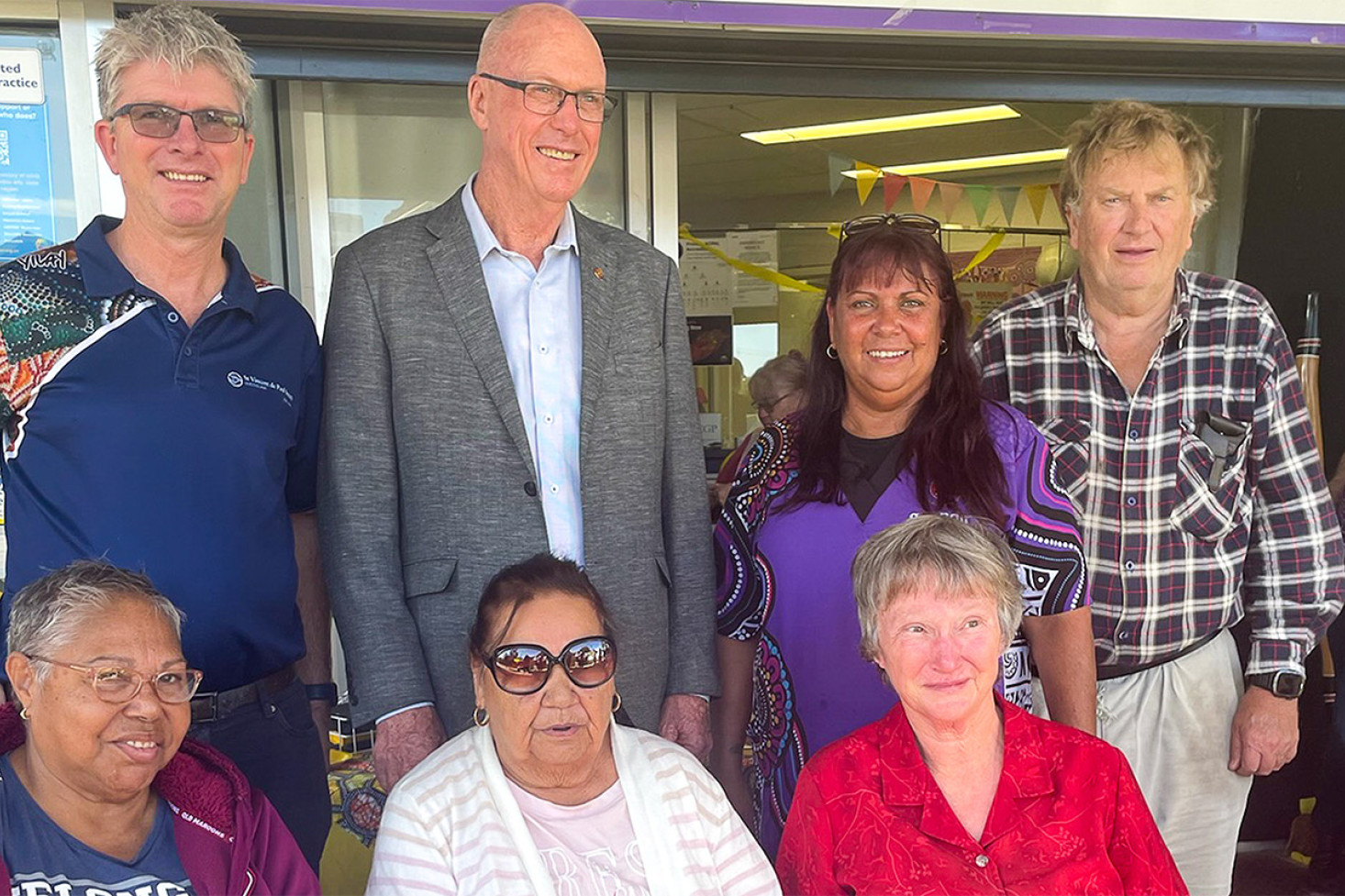Community & Business
29 May, 2025
Bridging now to next
National Reconciliation Week is being celebrated in Oakey with a theme of uniting Indigenous and non-Indigenous peoples in sharing a joint vision of the future.

Started in 1993 by churches and religious groups, the Week has since blossomed into a celebration of Australian First Nations people and culture, with events across the country.
In Oakey, the Week has a special significance, due to the town’s large Indigenous population.
In the 2021 National Census, 592 people identified as being ‘Indigenous’.
Legally defined, the term ‘Indigenous’ is broad and refers to anyone who identifies, and is recognised by their community, as being of Australian Aboriginal and Torres Strait Islander descent.
Pre-European settlement, the district of Oakey and surrounds was inhabited by the Jarowair and Giabal peoples of the Wakka Wakka (Bunya) country.
These peoples were driven out by pastoral settlement.
Today, Oakey is proudly represented by those of many peoples from across Australia, with particularly strong links to the QLD/NSW border communities.
National Reconciliation Week is anchored by two significant dates in Australia’s journey towards reconciliation:
May 27th – Anniversary of the 1967 Referendum which removed Section 127 of the Australian Constitution
June 3rd – Anniversary of the Mabo Decision, which abolished the legal doctrine terra nullius
Reconciliation Week in Oakey opened on Monday with elder Auntie Joanne Burns joining Pat Weir MP in cutting a cake donated by New Acland Coal.
On the day, Goondir Health shouted a barbecue for the community which was attended by representatives of Oakey Senior Citizens Club and the Freemasons.
Dr Mark Copland of the St. Vincent de Paul Society was a special guest at the barbecue.
Dr Copland contributed greatly to reconciliation in the Oakey district in his work in creating a needs-based report with the Social Justice Commission of the Catholic Diocese of Toowoomba.
Representatives from Oakey’s Indigenous community were invited to visit the Oakey Army Aviation Base on Tuesday for a Reconciliation morning tea.
Today (Wednesday), the Oakey Library has a book showcase exploring books by and about First Nations people and their stories.
Finally, on Friday, Oakey State High School students will create a kinship tree in the school’s yarning circle, with each leaf to feature their personal commitment to reconciliation between the peoples of Australia.
Reconciliation Week is co-ordinated nationally by Reconciliation Australia, a not-for profit government body that was founded in 2001.
“Twenty-five years ago, Corroboree 2000 brought together Aboriginal and Torres Strait Islander and non-Indigenous leaders in a historic call for reconciliation,” a spokesperson said on their website.
“This year’s theme, Bridging Now to Next, highlights the importance of connecting past, present and future.
“It calls on all Australians to walk forward together — learning from history and taking meaningful steps toward a more united future.”
Reconciliation Australia’s vision of reconciliation is based and measured on five dimensions: historical acceptance; race relations; equality and equity; institutional integrity and unity.
Here’s how they are defined by the body:
Race Relations
Definition: All Australians understand and value Aboriginal and Torres Strait Islander and non-Indigenous cultures, rights and experiences, which results in stronger relationships based on trust and respect and that are free of racism.
Goal: Positive two-way relationships built on trust and respect exist between Aboriginal and Torres Strait Islander and non-Indigenous Australians throughout society.
Equality and Equity
Definition: Aboriginal and Torres Strait Islander peoples participate equally in life opportunities and the unique rights of Aboriginal and Torres Strait Islander peoples are recognised and upheld.
Goal: Aboriginal and Torres Strait Islander Australians participate equally and equitably in all areas of life – i.e. we have closed the gaps in life outcomes – and the distinctive individual and collective rights and cultures of Aboriginal and Torres Strait Islander peoples are universally recognised and respected. Aboriginal and Torres Strait Islander people are self-determining.
Institutional Integrity
Definition: The active support of reconciliation by the nation’s political, business and community structures.
Goal: Political, business and community institutions actively support all dimensions of reconciliation.
Unity
Definition: An Australian society that values and recognises Aboriginal and Torres Strait Islander cultures and heritage as a proud part of a shared national identity.
Goal: Aboriginal and Torres Strait Islander histories, cultures and rights are a valued and recognised part of a shared national identity and, as a result, there is national unity.
Historical Acceptance
Definition: All Australians understand and accept the wrongs of the past and their impact on Aboriginal and Torres Strait Islander peoples.
Australia makes amends for past policies and practices ensures these wrongs are never repeated.
Goal: There is widespread acceptance of our nation’s history and agreement that the wrongs of the past will never be repeated— there is truth, justice, healing and historical acceptance.
How would you like to see reconciliation in Oakey? Email us at editorial@oakeychampion.com.au


